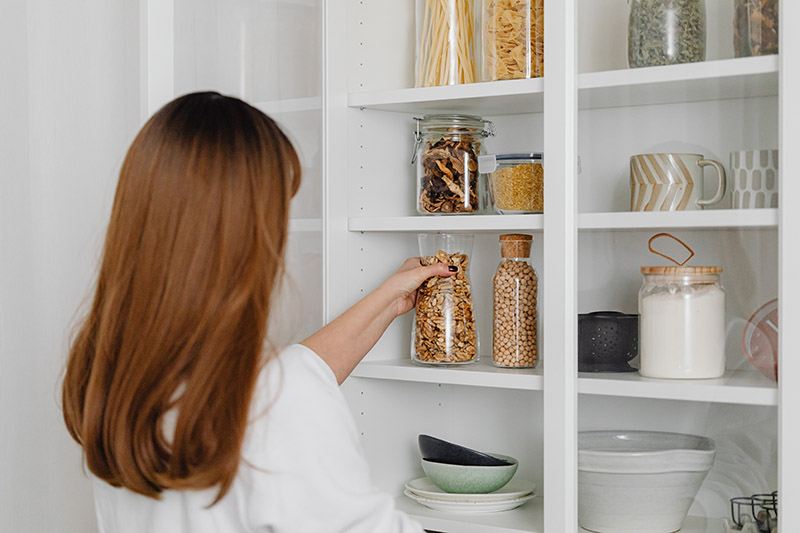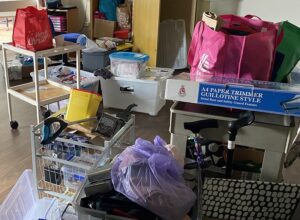
If you are going to declutter and organise, do it right. Avoid these pitfalls.
Mistakes people make when organising
1. They procrastinate, waiting for a full day or week in their schedule. Just do it. Even a small project like a kitchen drawer or the bench top will make you feel fabulous and will improve mental clarity and calm. And getting some momentum is always good.
2. They don’t have a clear vision for their space. Create a vision to make decisions come more easily (“does this item suit my vision?”) and to get a better outcome. You don’t need a corkboard and a Pinterest account – but a rough idea is helpful.
3. They buy storage containers before they start the process. This is one of the biggest mistakes people make when organising, and as a Professional Organiser I see these surplus containers a lot. It’s unlikely you will know what size or how many, so just hold off. Buying stuff you don’t need is what got you into this mess in the first place.
4. They think that throwing random excess items in tubs and shoving them out of sight is a good idea This is very unkind to future you. You will never know what is in those tubs and should either organise and label their contents or donate them. Make a decision on everything you touch.
5. They don’t label their process. I suggest you use 3 tubs/boxes – (1) Keep (2) Donate and (3) Discard. If the tubs are not labelled, the categories get mixed up and it’s tempting to abandon the mission.
6. They don’t label what they have done. If you have a pile of clothes to take to the tailor, label it as such. If you have created a baking zone in your pantry, label it. You think you’ll remember, but you may not – and if you live with others, THEY won’t remember.
7. They don’t store like with like. Neatening up piles of assorted stuff is not decluttering. It’s a very short-term solution. If you don’t store items in an intuitive way, you will end up repurchasing things you already own. (And the clutter cycle continues…)
8. They let guilt dictate what they keep. Gifts you no longer need are better off with someone else. The giver wanted you to be happy – not to feel forever burdened by Christmas 2006.
9. Allowing sunk costs to rule the process is another of the big mistakes people make when organising. If you aren’t going to use it, how much it cost you is irrelevant.
10. They don’t think about their stuff objectively. The endowment effect makes things seem more valuable to us than they are. Zoom out and examine your reactions to things as a curious onlooker. Are you being sensible?
11. They keep too much. Leaving your space in a Jenga arrangement exclaiming ‘it all fits!’ is not sustainable. Give your items breathing space. It means you can access things without pulling it all apart, and you can fit in something new if you need.
12. They don’t take breaks. Mistakes people make when organising always include this. Decision fatigue is real.
13. They don’t think about access. Things you use regularly should be stored near point of performance, and be easy to grab. Not stacked under other things, or put inside tubs with lids. Don’t make access difficult, and don’t make putting things away difficult.
14. They keep things only because they don’t want to create landfill. Sweetie the landfill has been created – YOU can choose whether you want to live amidst it.
15. They over-think the donation process. It’s great to give old towels to the pet shelter, ripped clothes to the fabric recycler and your wedding dress to a charity that helps underprivileged students do their deb. But if these complicated processes are stopping you from doing anything, just take it all to a big op shop near your home, and leave the finer details to them.
16. They don’t remove the donations from their home, and the items end up back in circulation. This is especially important if you have kids – get those old toys OUT.
17. They don’t hire a Professional Organiser to get the ball rolling and share more valuable pieces of wisdom. Feel free to reach out.






























